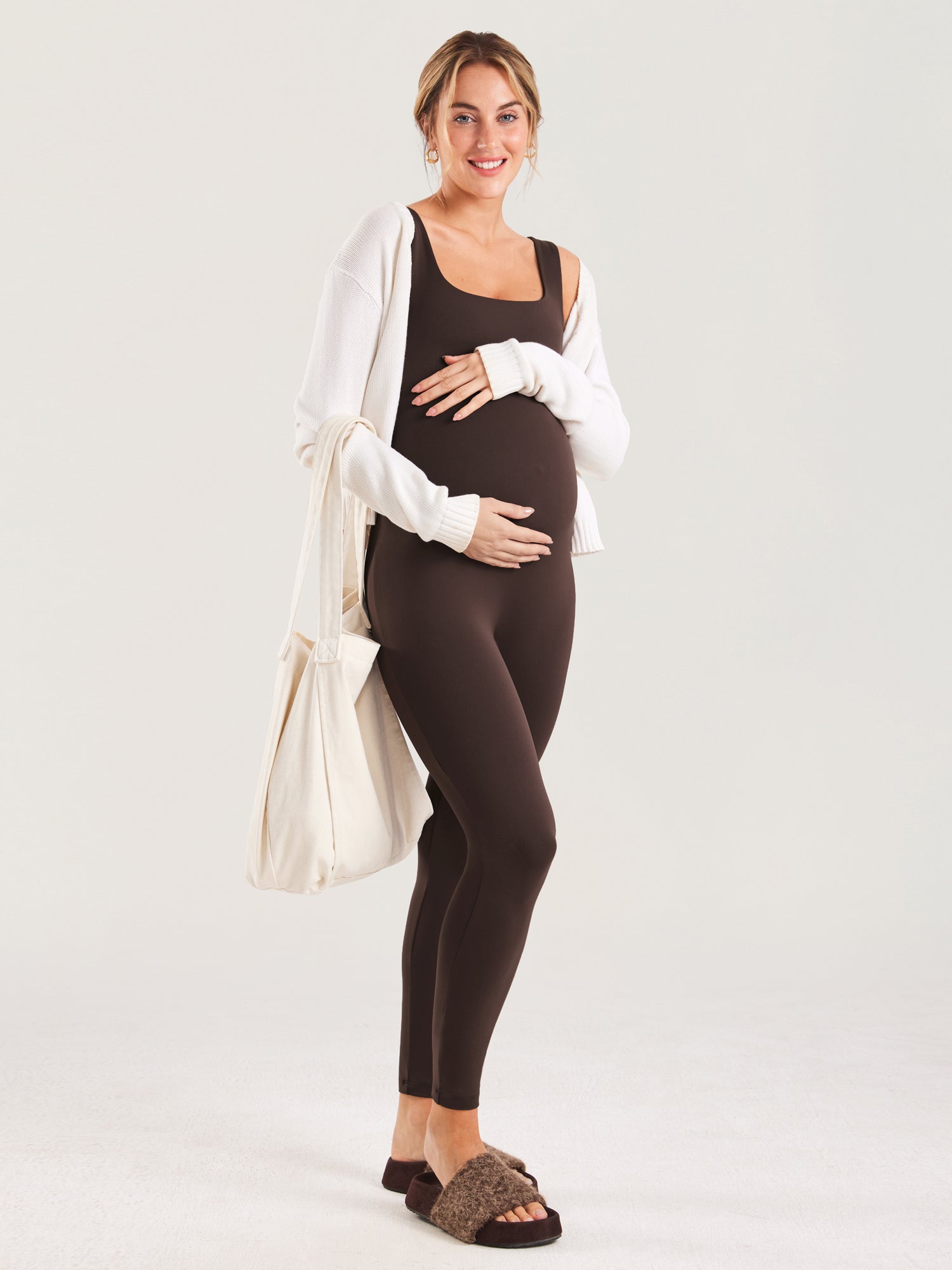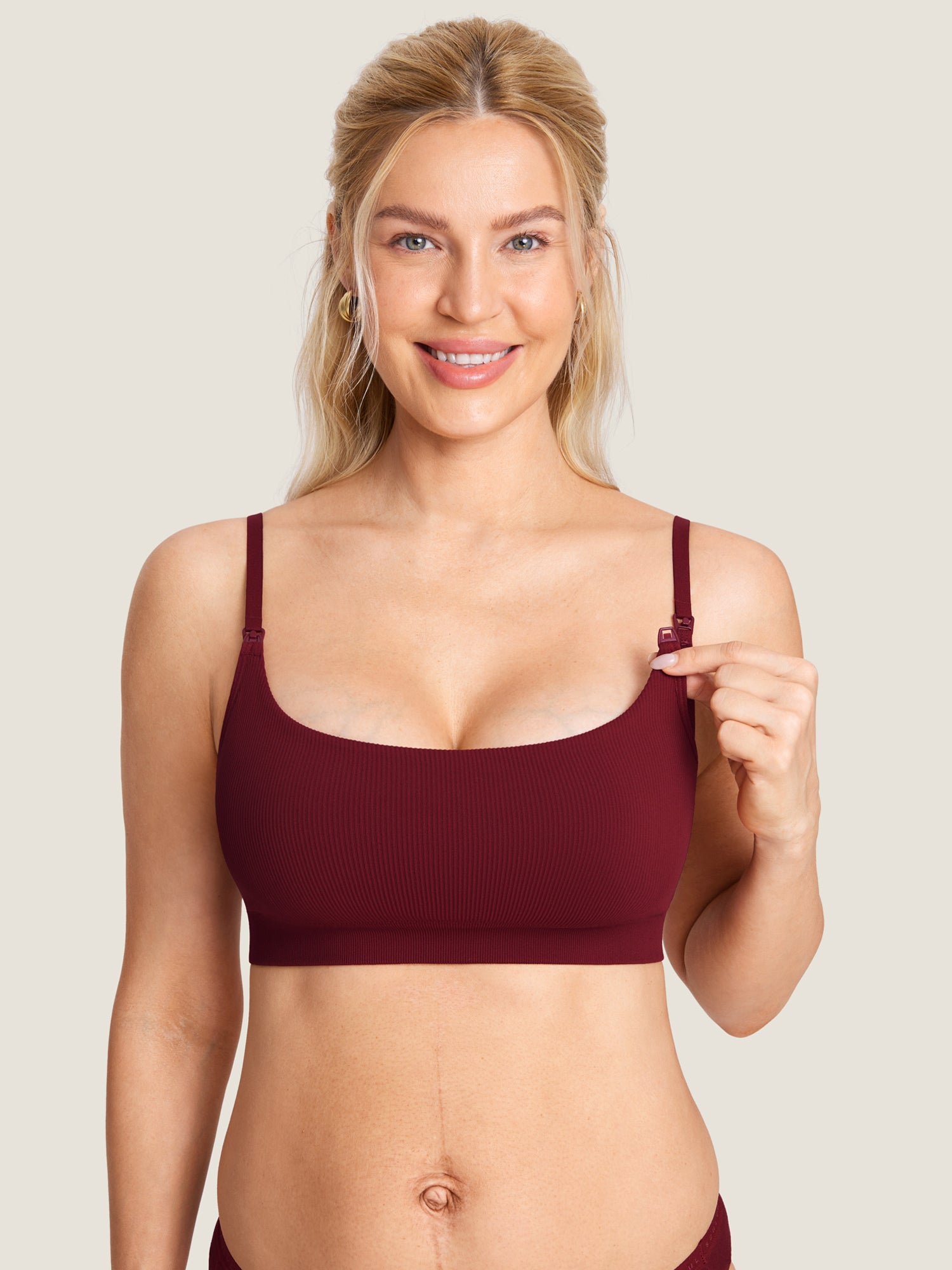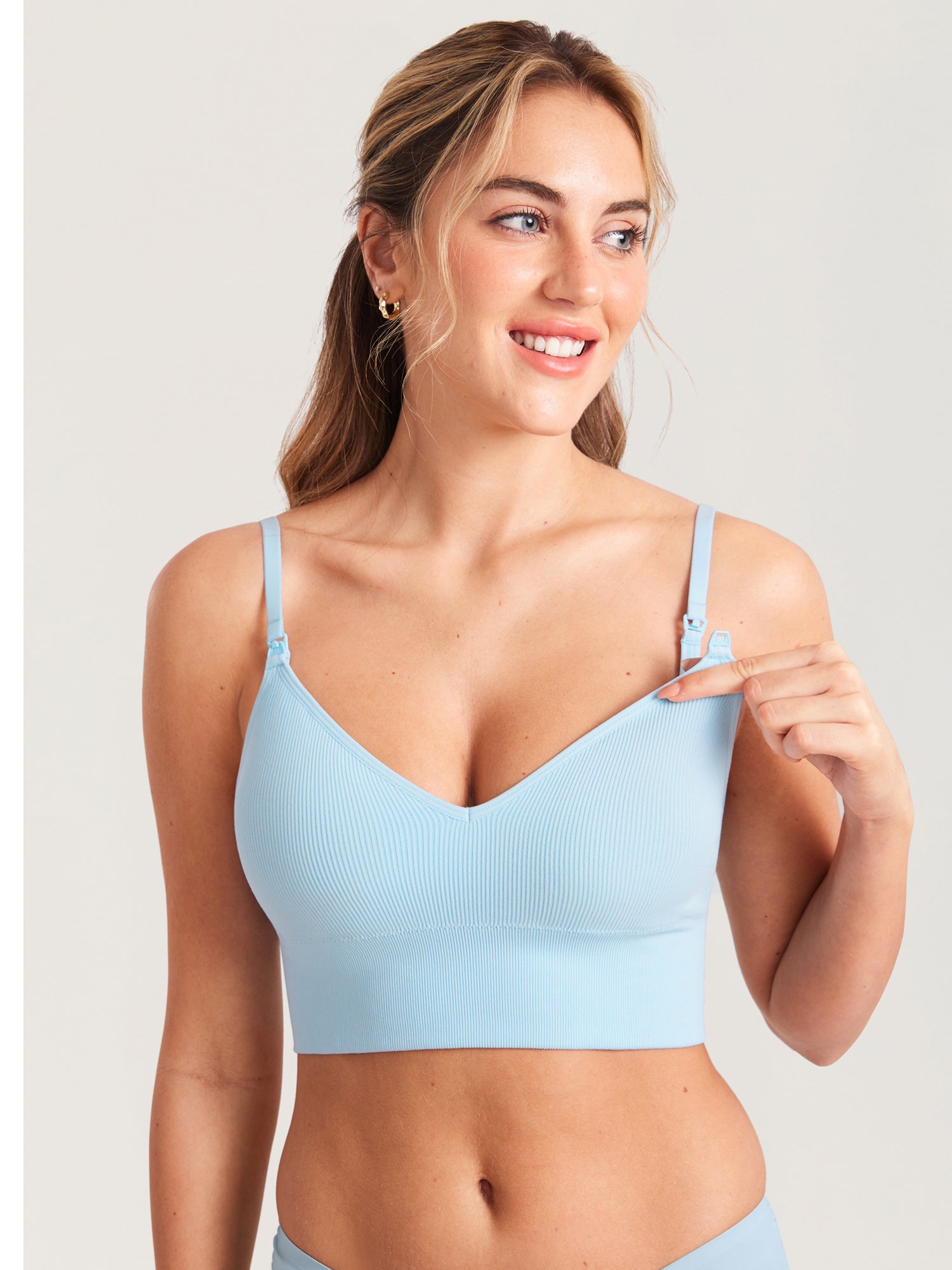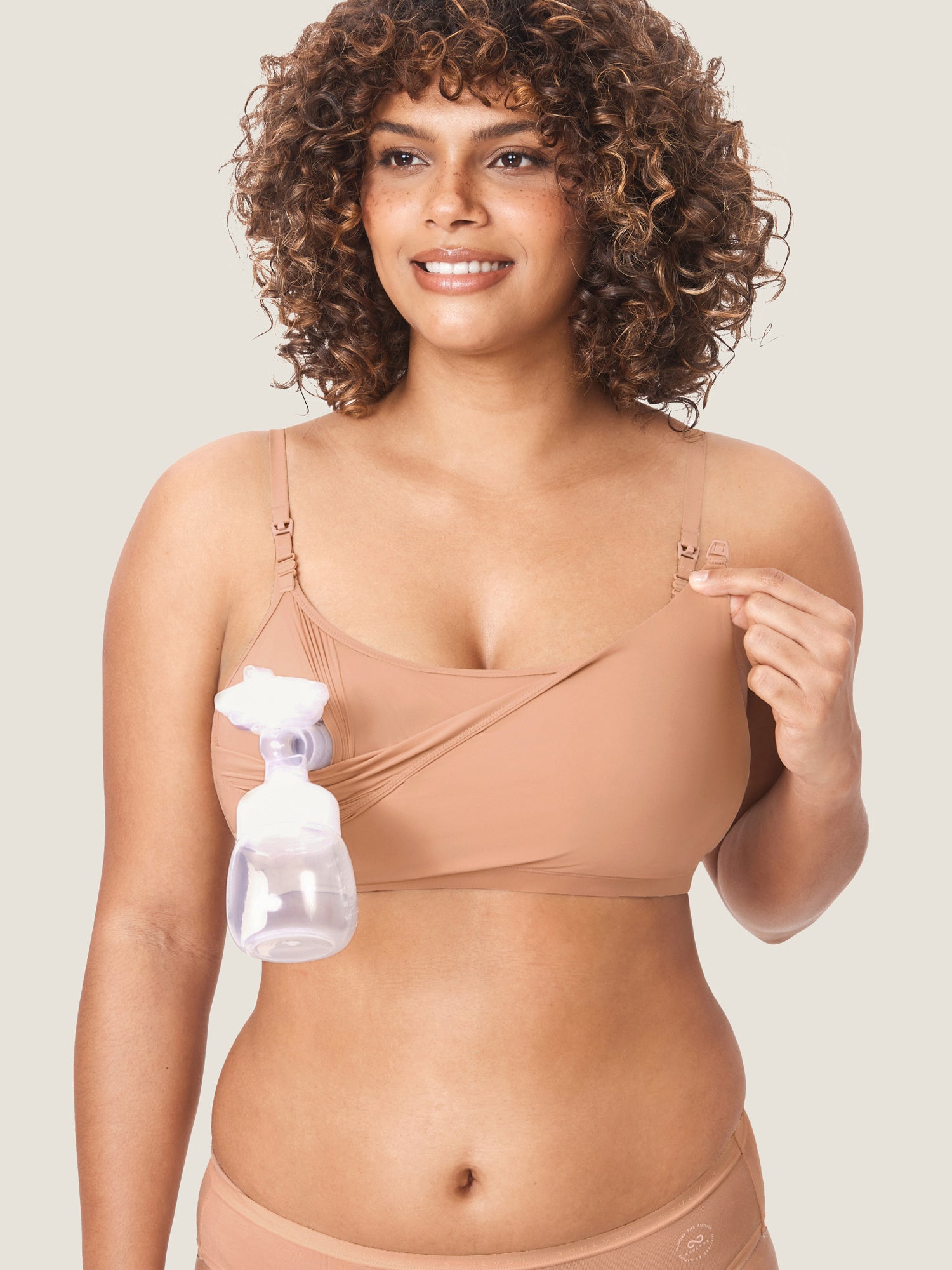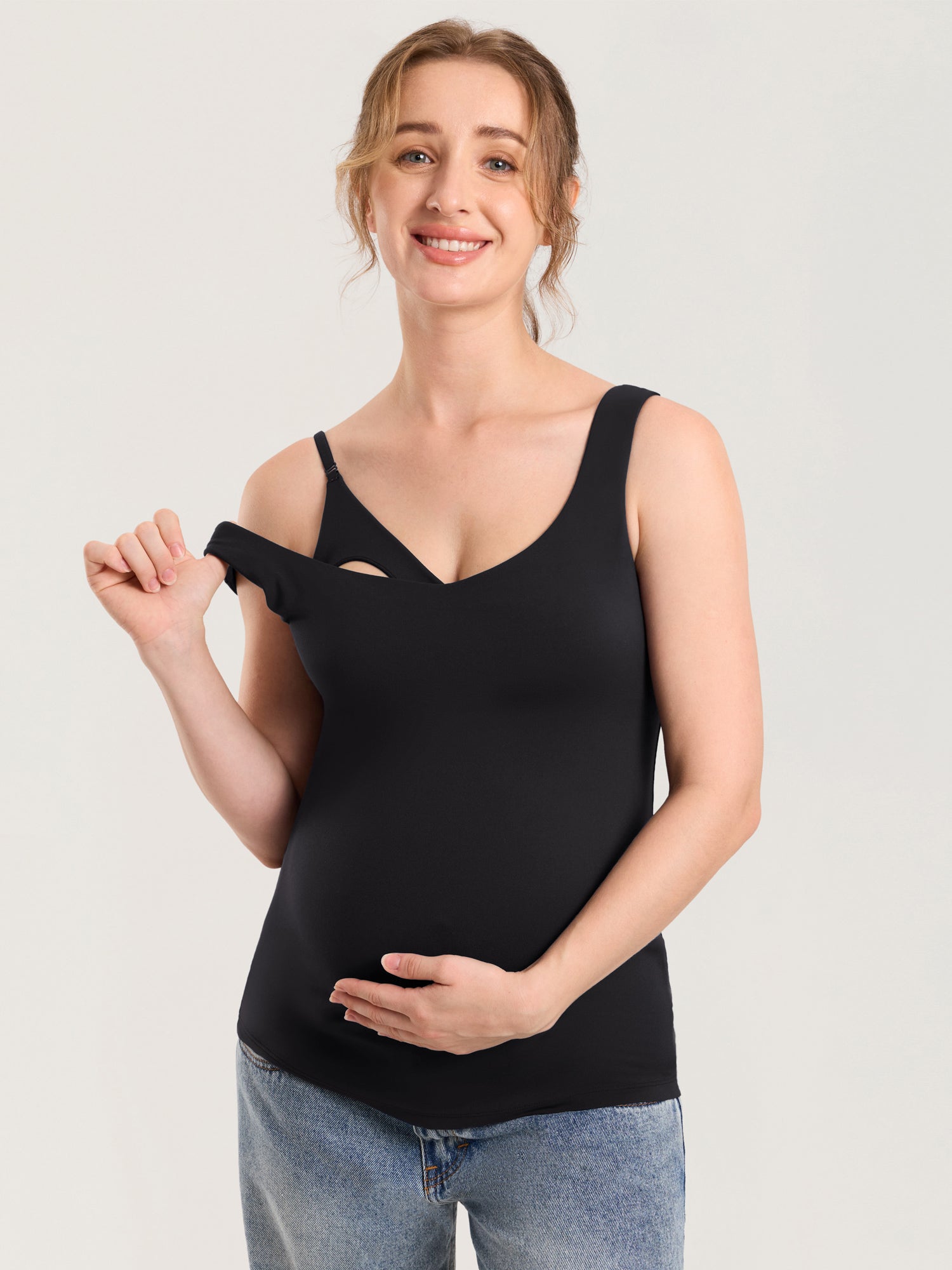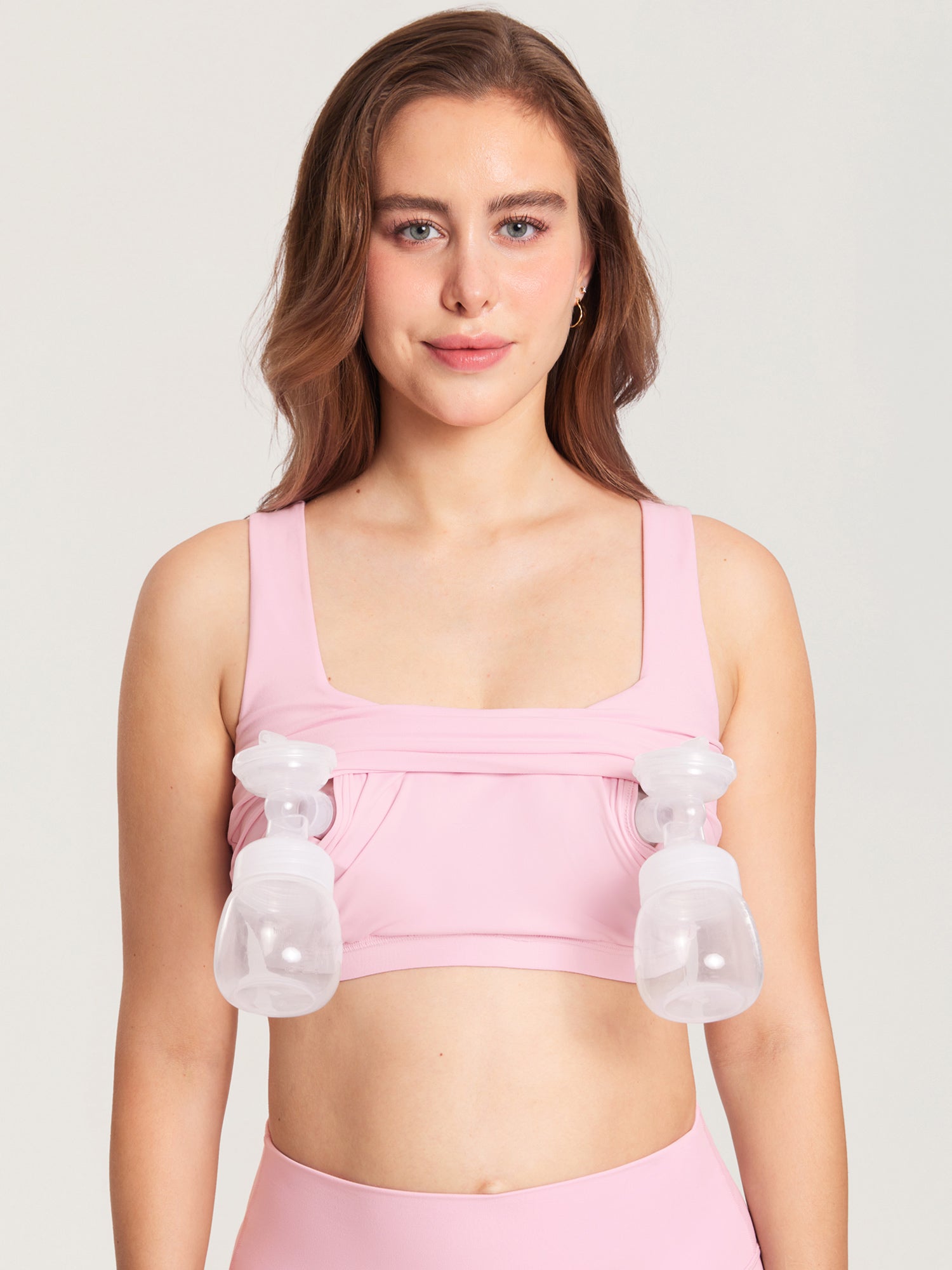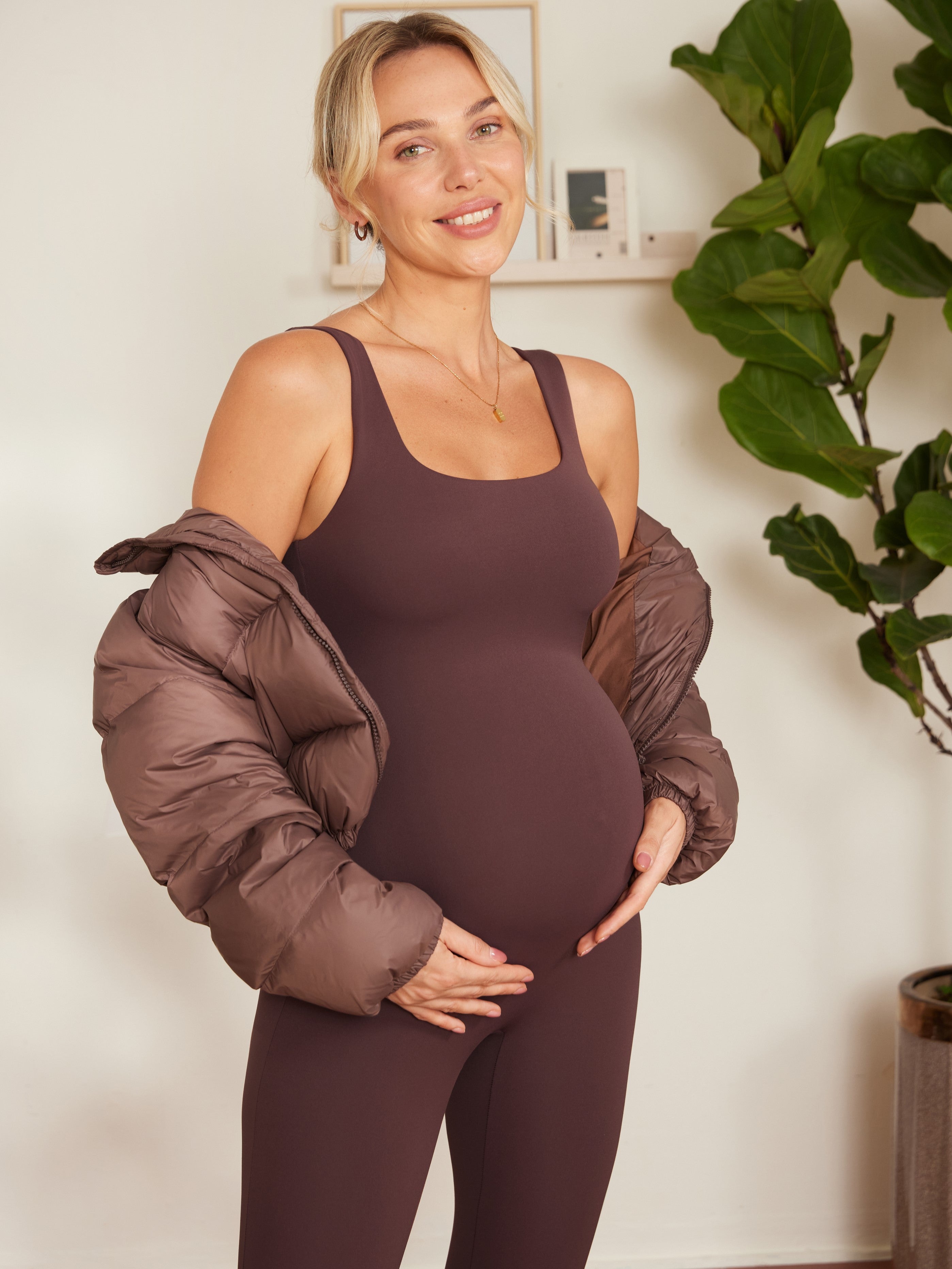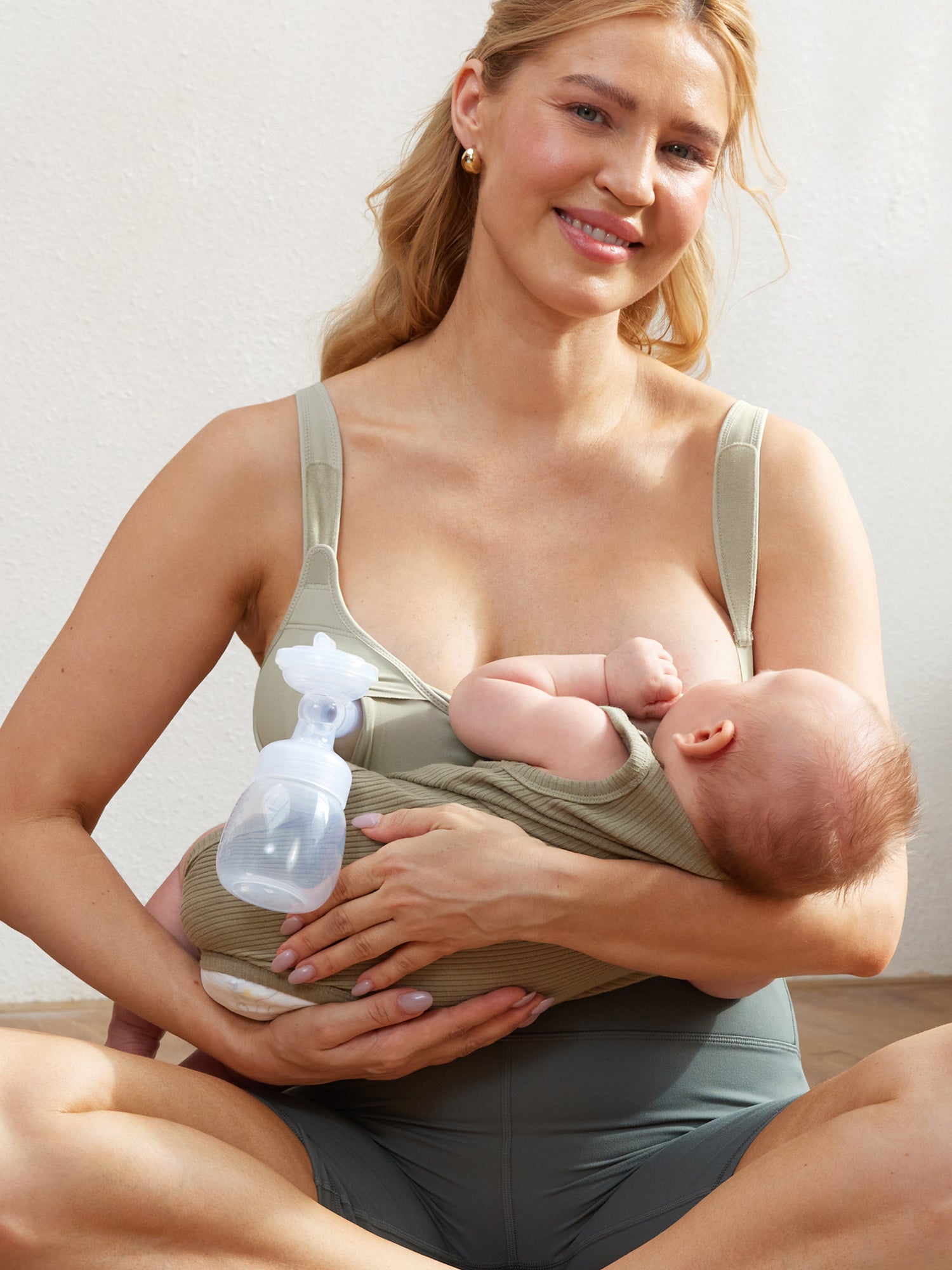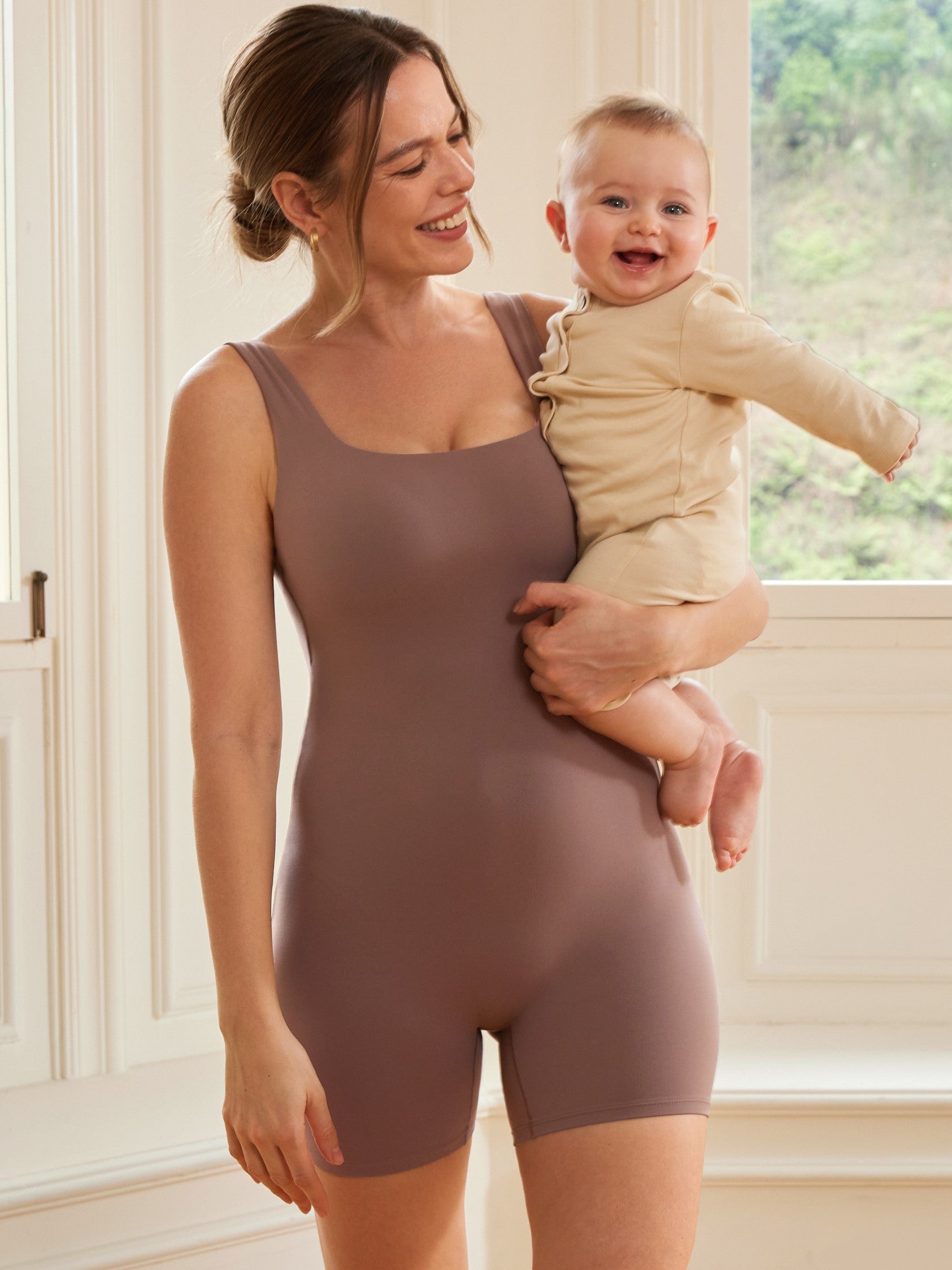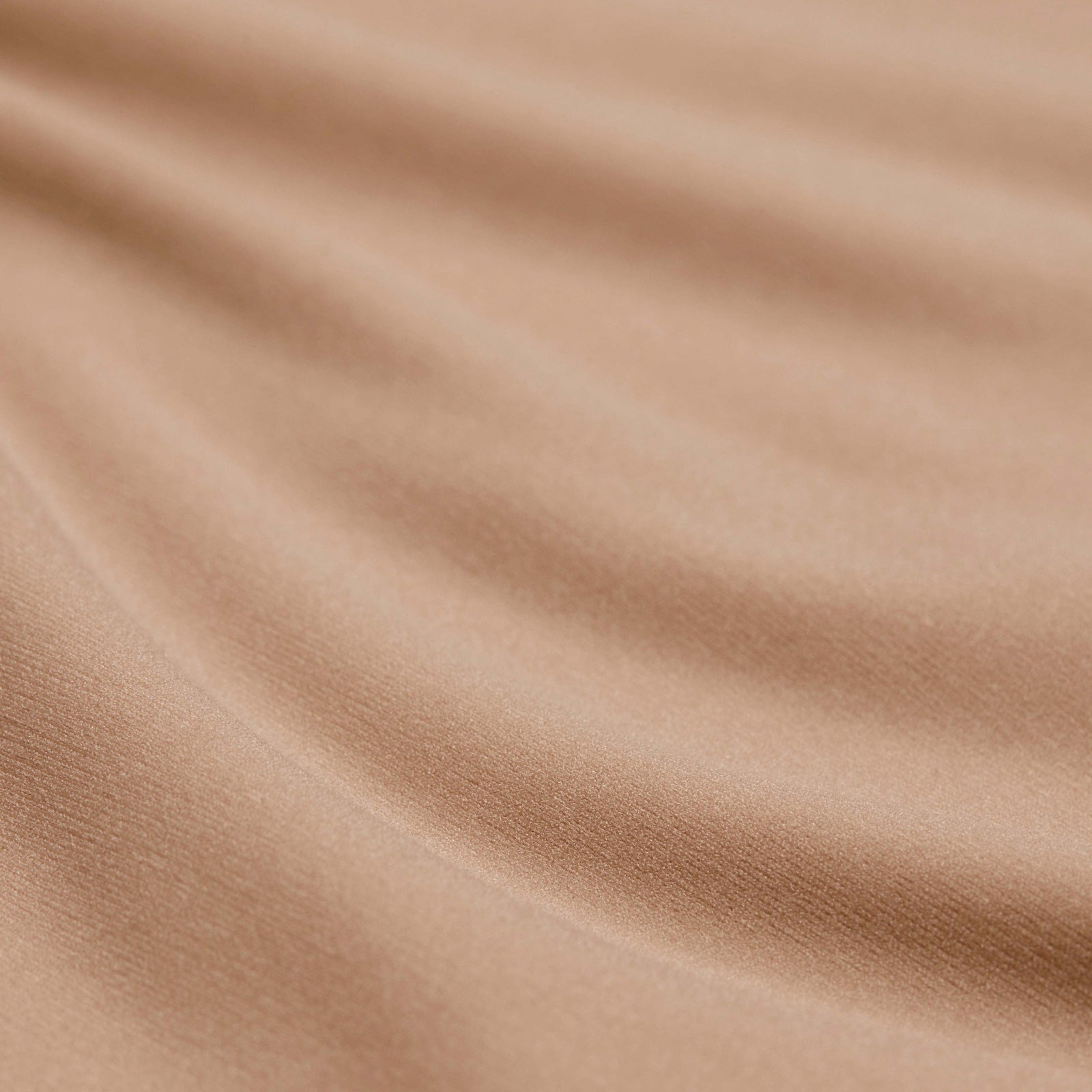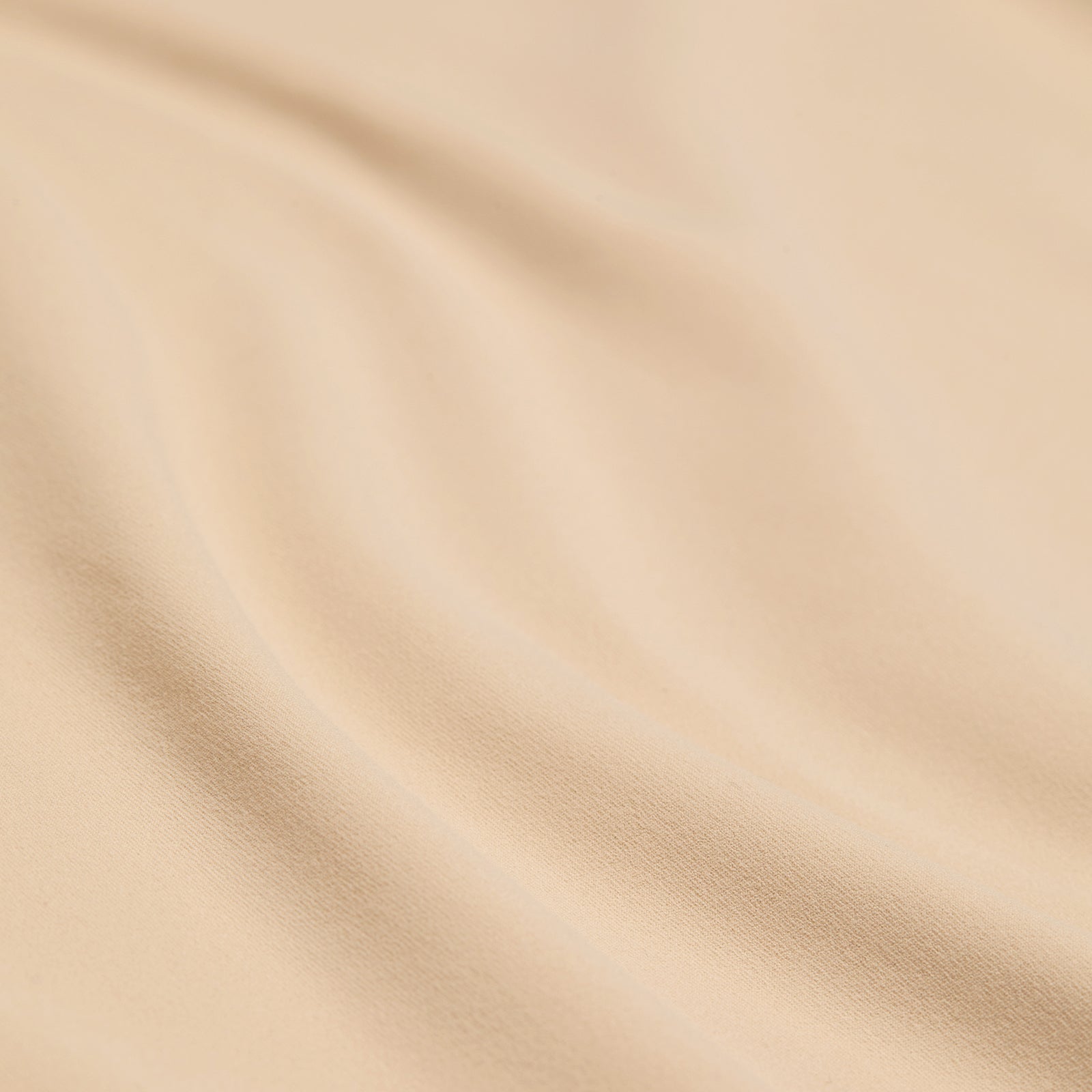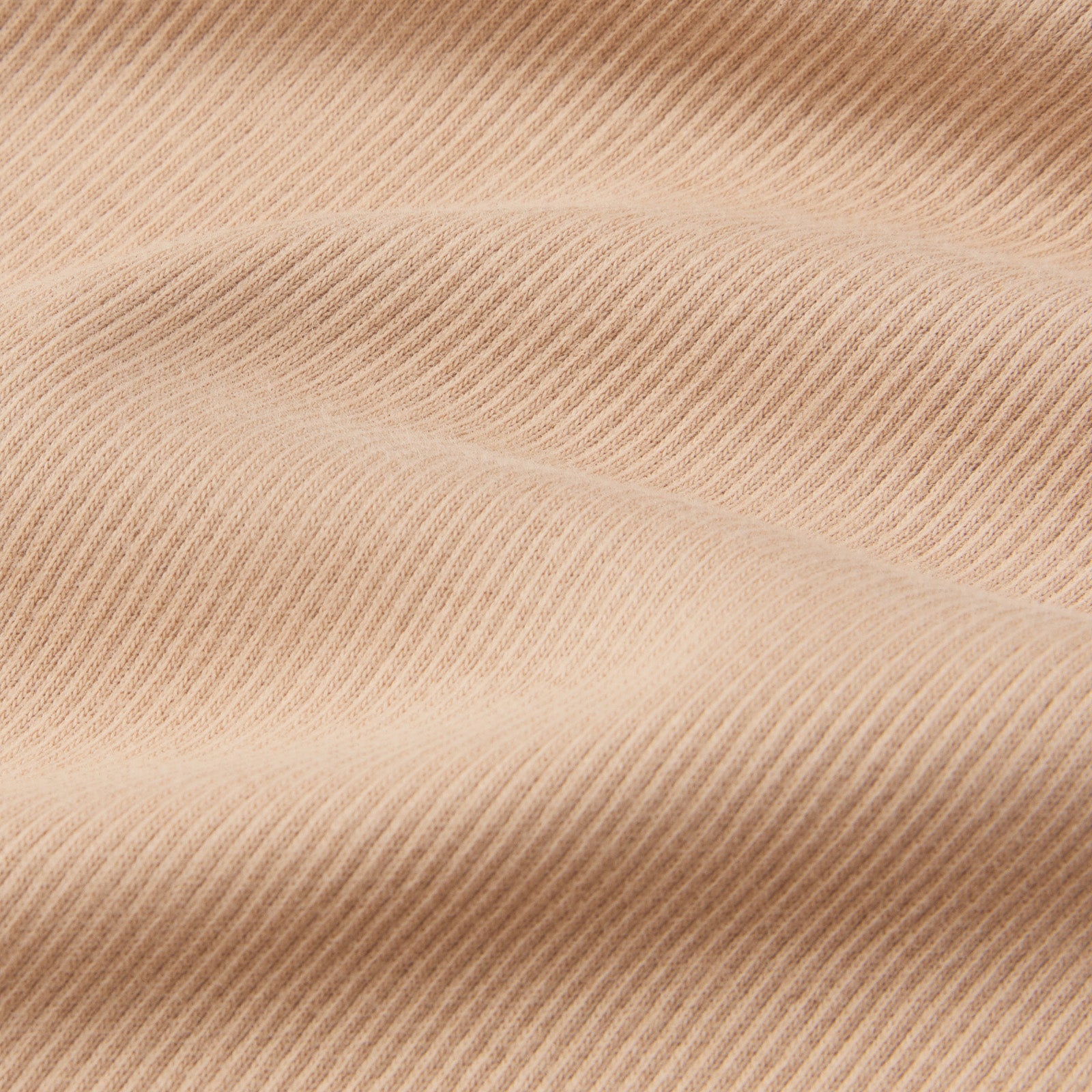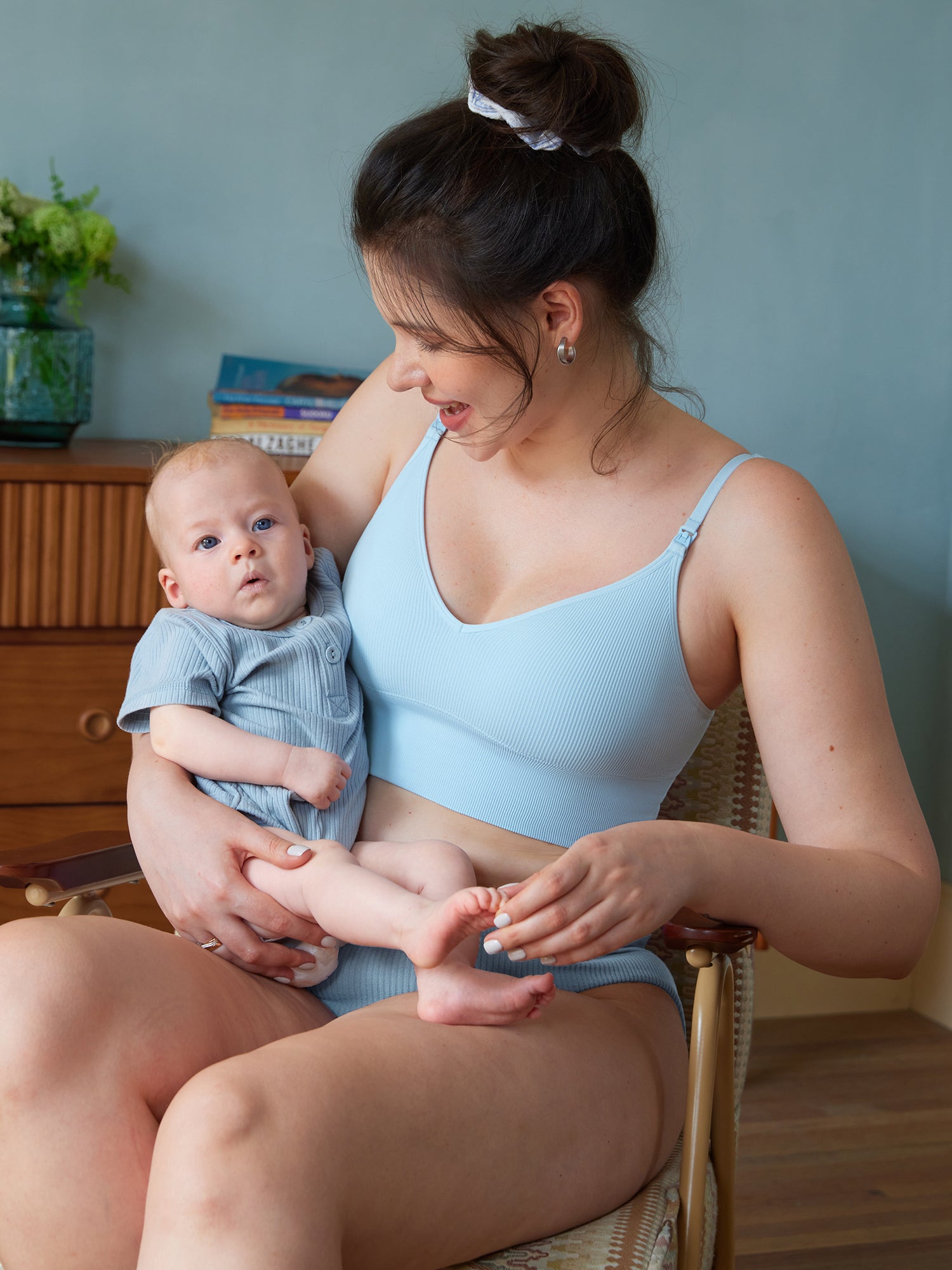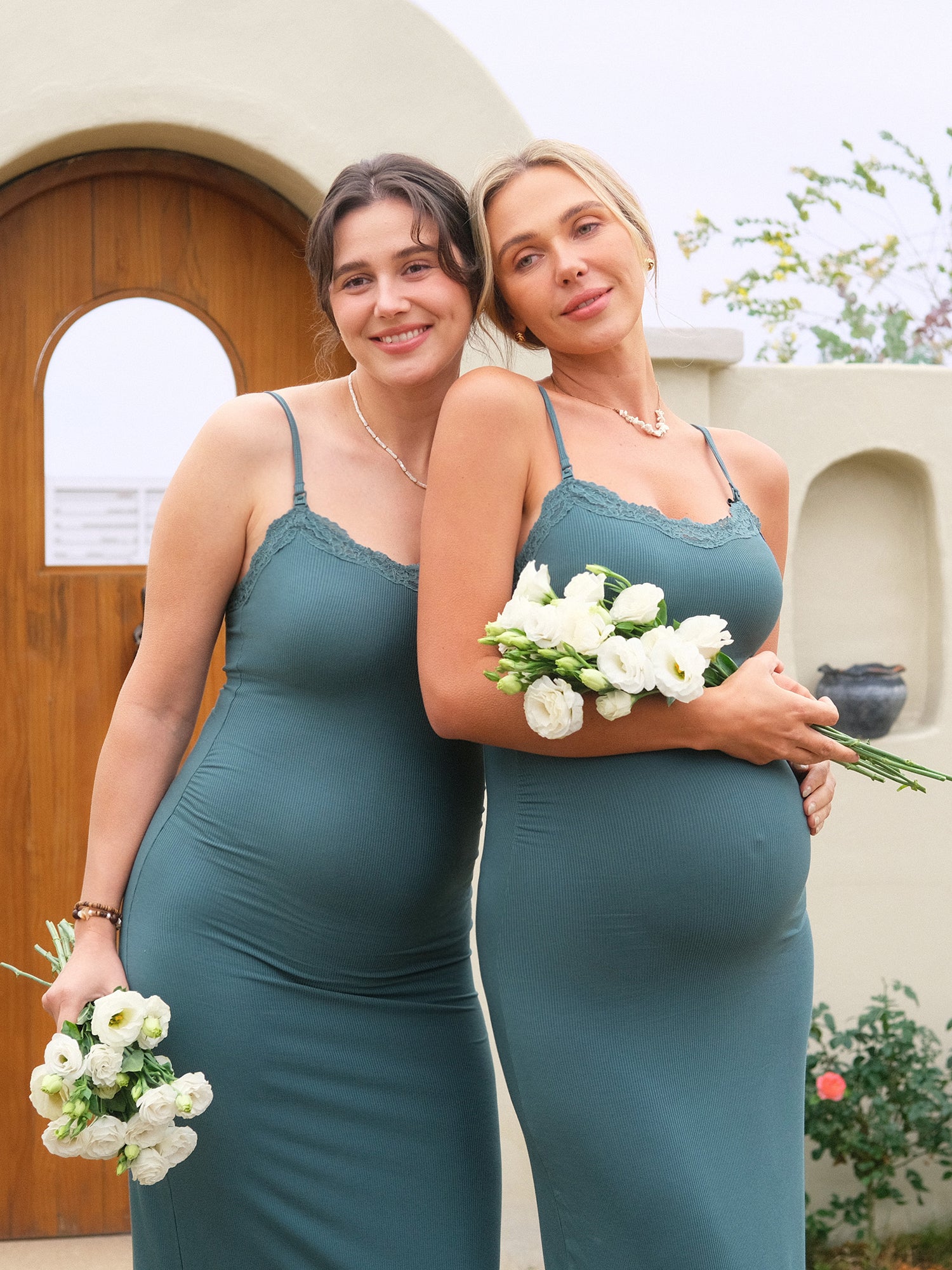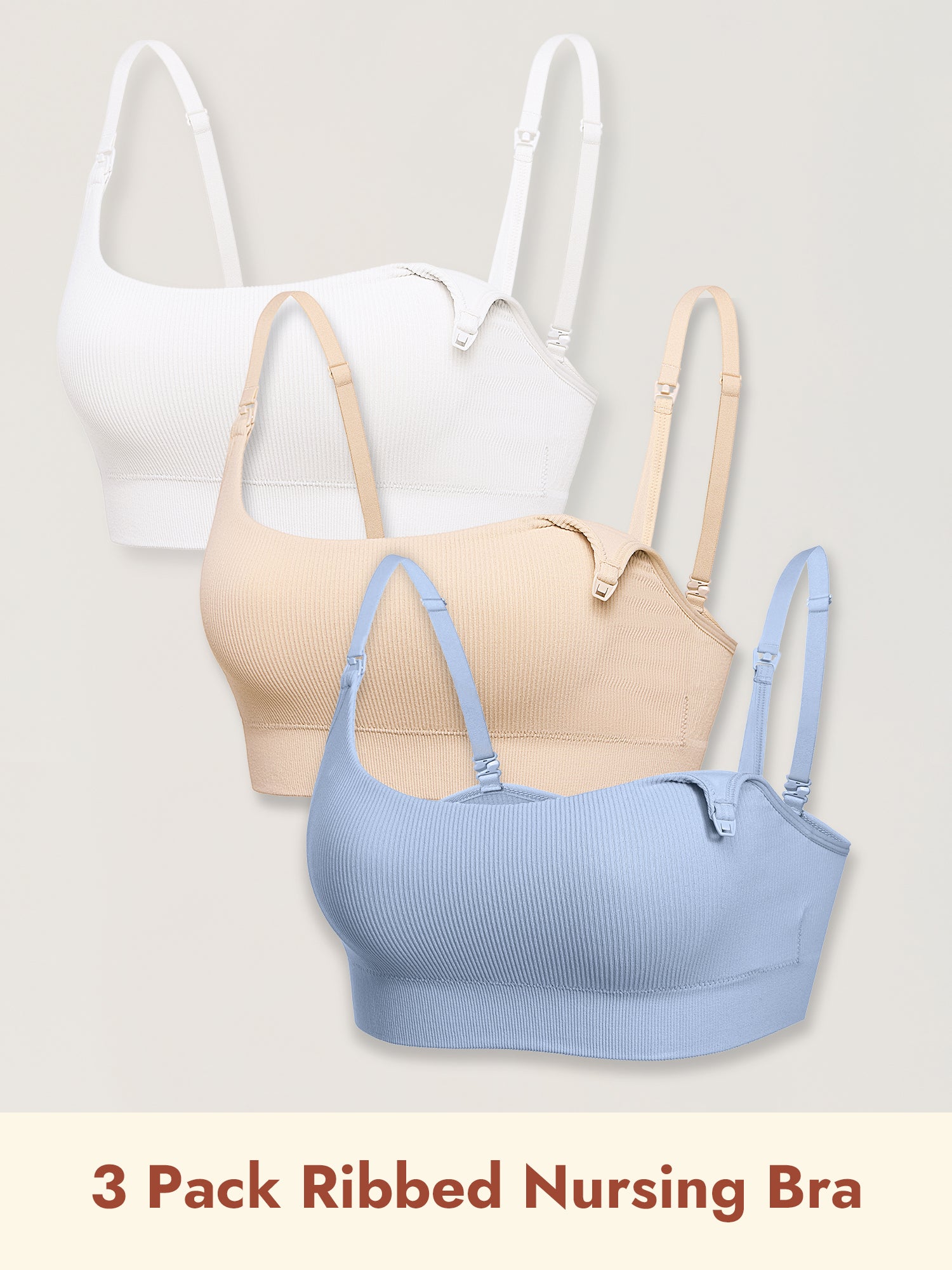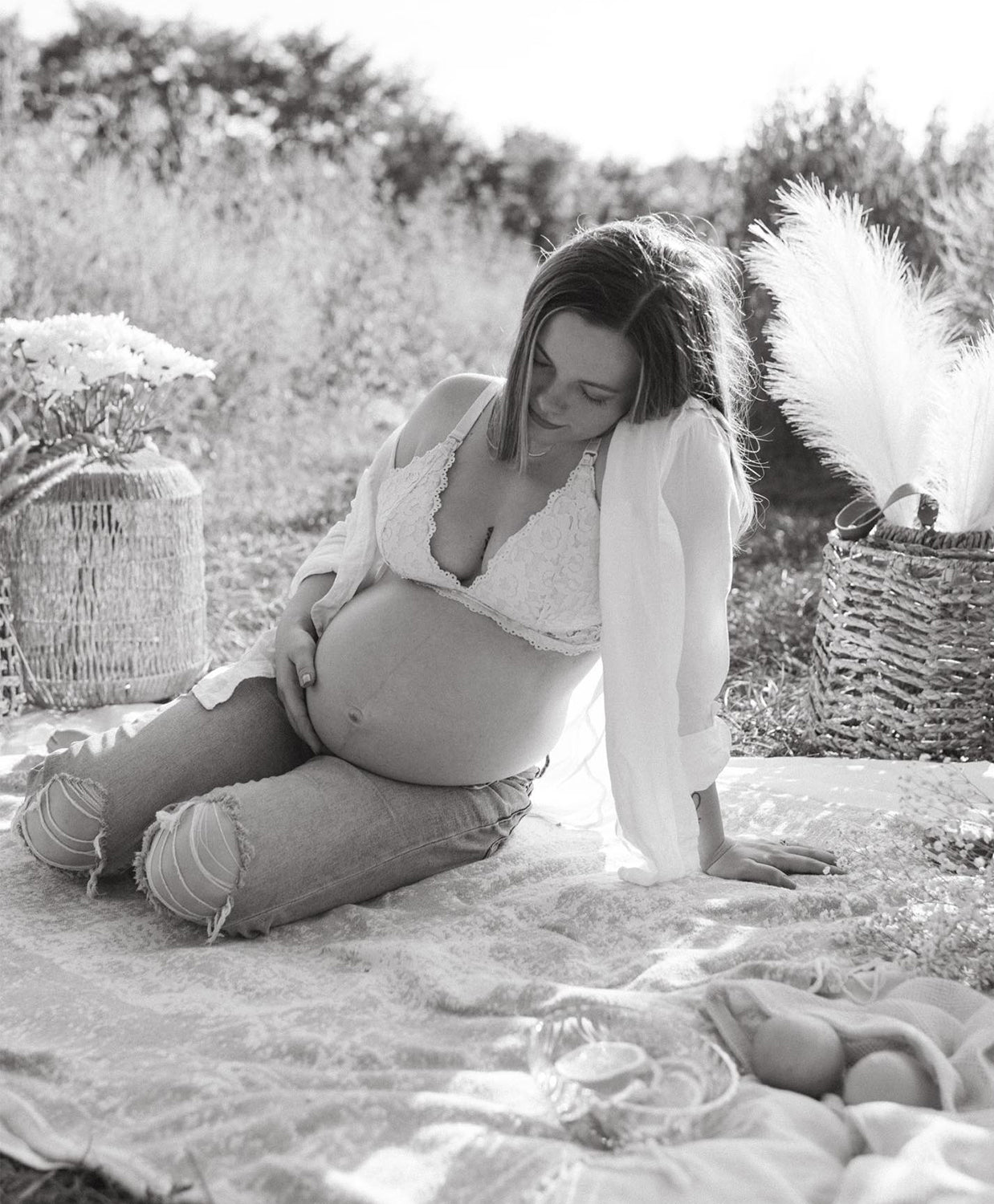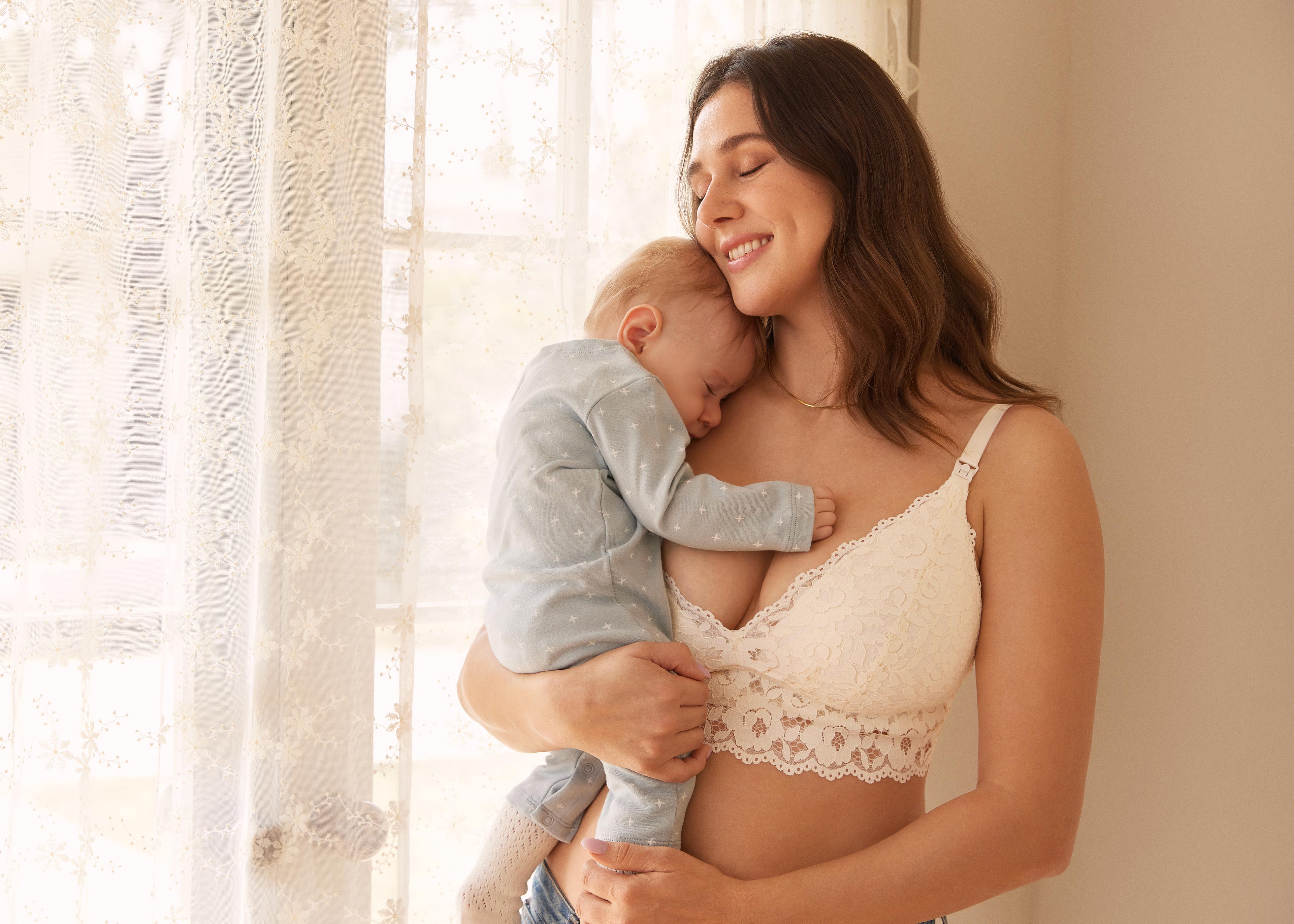What to look for when buying maternity lingerie

Your body changes a lot during pregnancy. It’s not just your tummy that’ll be expanding. Right from the first weeks of pregnancy until the onset of milk production a few days after delivery, your breasts will change their size significantly. As a result, trying to keep up with the right size of underwear might be a little difficult.
So how do you find and buy underwear that is comfortable, maintainable, and breastfeeding-friendly? And of course, you obviously want to look great in them as well! So what should you look for when buying maternity lingerie?
What to look for in maternity lingerie during the first trimester
During the first trimester of pregnancy, one of the first signs of pregnancy is that your breasts will enlarge by one or two sizes. This can happen as early as the first month and you might even notice it before your first pregnancy test.
Between eight and ten weeks of pregnancy, you may notice that you've outgrown your regular bra. This is the perfect moment to invest in a well-designed maternity bra that will keep you comfortable and supported throughout your pregnancy.
While it is hard to predict how your breasts will change throughout your pregnancy, there are three times when they will typically grow: in the first trimester, the last trimester, and when milk is produced. You should get a new bra as soon as you feel uncomfortable.
How to buy maternity lingerie in the first trimester
To avoid unnecessary purchases, consider investing in high-quality lingerie that can be used from pregnancy to pregnancy. The better the quality of the lingerie, the more likely it will have features that allow it to be adjustable to the greatest extent feasible to variances in chest size. You’ll also get breathable materials with soft support that will be comfortable throughout your pregnancy.
If you are planning to breastfeed, go for a nursing bra option early on so you can still use it once your little one gets here.
How to choose your size
Have your measurements taken in a shop, or, if you're shopping online, you can measure yourself at home using a tape measure. Above all, use the size chart for the specific brand you've chosen, as sizes can differ from one manufacturer to the next. For more information, check out our size guide.
When trying on a bra, keep the following in mind to ensure that you wear it for as long as possible:
- There's got to be some room in your back clasps. It's a bad sign if you're in the last row of clasps and you're in the first or second trimester of your pregnancy since your back will continue to expand and the bra will soon be too small for you.
- You should also have a small margin at the cup level. A hand or a breast pad must be able to easily slip inside.
- Adjust your straps properly: a lot of times, when we think our bras are too big, it’s probably because the straps haven’t been adjusted correctly.
How to buy maternity lingerie in the third trimester
At the end of pregnancy, the breasts can sometimes increase a cup size as the body prepares for breastfeeding. If you want to nurse while also expanding your wardrobe, you can reinvest in a larger cup size bra at the end of the seventh or beginning of the eighth month.
Avoid purchasing a bra during the period of increased breastmilk production, when the breasts swell dramatically. It's pointless because that size rarely lasts long. If you have waited till this stage, consider giving it a little more time until you've begun breastfeeding before purchasing more bras.
📌Wireless or with underwire?
If you prefer underwired bras for comfort, go for it. Just make sure you get soft-banded types. That said, if you have a sensitive chest or if your tummy swells to the height of your chest, wireless bras are recommended.
📌For breastfeeding moms
You need something comfortable to sleep in that is soft and feels like a second skin. Nursing bras, which are ultra-flexible and expandable, are great for this. If you're breastfeeding, it'll hold pads to catch milk spills between feedings at night. Even if you are not breastfeeding, you will benefit from better support for milk production.
What to consider when shopping for maternity lingerie
- Material. Look for products made of textiles that will change with your body. Furthermore, pregnancy might make your skin sensitive, and some materials (such as synthetic fabrics) can irritate you. Choose materials that are comfortable and breathable.
- Size. Don't buy maternity bras that are too big. If the bra is too big, it won't be able to support you correctly or look good under your clothing.
- Usability postpartum. You should also think about how long you can use the lingerie. The best kinds can be worn postpartum and come with slip-down straps to make breastfeeding easier.
- Wireless bras. For added comfort, choose a bra without an underwire. Check to see if there are any extra hook-and-eye closures for your expanding waistline and if the fabric is stretchy enough to accommodate your changing shape. Plus, although there is little proof that underwired bras are harmful, they might become inconvenient as your body develops. As a result, many expectant mothers prefer soft-cup bras during their pregnancy.
- Cotton undies. During pregnancy, discharge tends to increase. Cotton underwear (or at the very least a cotton crotch area) is more breathable and absorbent, keeping you dry.
Other things to look for when choosing maternity lingerie
- Wide straps, sides, and under-bust band, as well as a deep center in the front, are all signs of support. Firm elastic straps reduce bouncing and provide additional support.
- Coverage: As much cloth as possible should be draped over your breasts. If your breasts grow more sensitive, this will help you stay comfortable.
- Adjustability: Your bra should have at least four hook positions to allow it to expand with you.
- Look for bras that are primarily made of cotton. Because pregnancy raises your body temperature, a cotton bra will soothe your skin and allow it to breathe.
Do I need to have my bust size measured?
Yes, it will make your life a lot easier. Simply go to a department store or a specialty lingerie shop for a professional measuring and fitting service. Once you know your size, you’ll be able to shop for maternity lingerie online.
When you get your bust size measured, you’ll also get the help you need to choose a well-fitting bra that ensures:
- The cups are snug, cover most of your breasts, and don't overflow at the top.
- Your bra fastens to the first set of hooks, providing plenty of room for growth
- The center seam sits comfortably against your breastbone.
Consider getting measured at least every few months especially when you are pregnant or breastfeeding as your cup size fluctuates a lot during this time.
If you're getting fitted late in your pregnancy, get a bra that fits snugly over the last set of hooks. Your ribcage will progressively shrink following the delivery of your baby, so you'll want a bra that will last.
Final Thoughts
Pregnancy causes lots of changes to your body, not least of which is your growing breasts and expanding tummy. The discomfort that comes with these changes makes you want to avoid wearing anything unpleasant, irritating, or tight. This means that when buying lingerie, you want to make sure it will make you feel wonderful. We hope that with the tips outlined here, you’ll be able to snag yourself the perfect pregnancy lingerie.
As you pack your maternity bag and get ready to head to the hospital, here is a shortlist of essentials that will make your life a whole lot easier:
- Two sports bras
- A nursing bra
- Breast pads
- A breastfeeding nightgown if you're breastfeeding
When Should You Buy Nursing Bras
Feb 02, 2025 SamanthaHoare
How to Use a Nursing Bra and Which One is Best?
Jan 03, 2025 SamanthaHoare
How to Choose a Nursing Bra for Large Busts
Dec 20, 2024 PageFly
Why You Actually Need Nursing Bras?
Dec 20, 2024 PageFly
How to care for your nursing bra
Sep 30, 2022 AngeliaSmith
The ultimate guide to choosing the best maternity leggings
Sep 09, 2022 AngeliaSmith
SUBCRIBE FOR NEWSLETTER
Shop today with 10% OFF your first order of all products storewide

